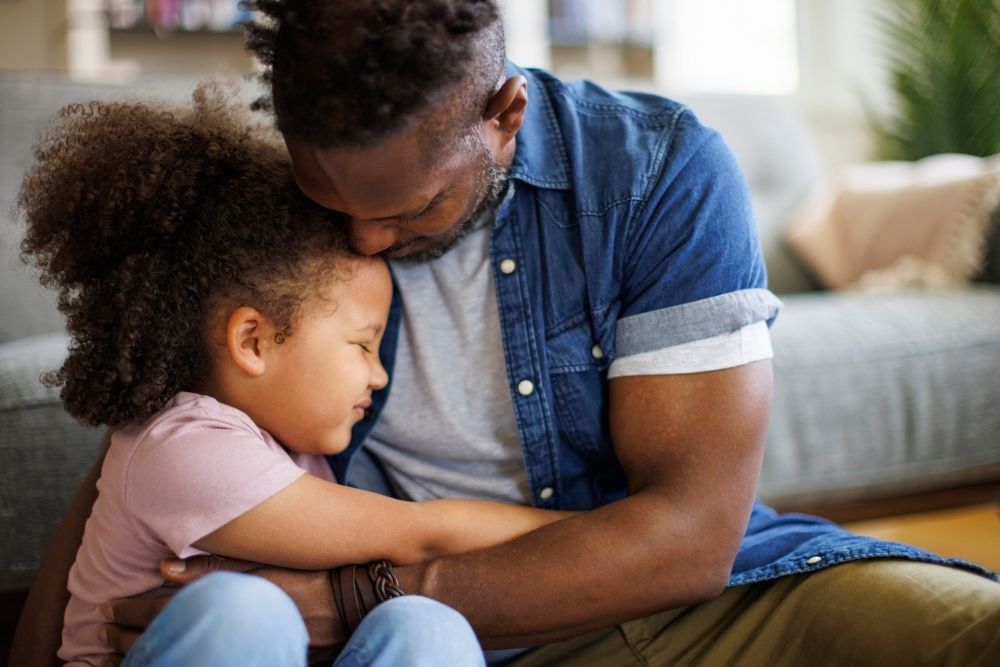Grieving is painful, no matter your situation. Learning to navigate life without an important person is hard enough, but for a parent, there is also the obligation to help their child with their own grief. At The Pavilion, in Williamsburg, Virginia, we offer detox, inpatient, and outpatient behavioral health care for adults and seniors, and support for families. We know that a big loss can be difficult to overcome, but we are here to help.
Teaching Children How to Grieve
Children learn by observing. How they see the adults in their lives handle pain will provide a foundation for how they learn to manage their own losses. It is important for them to see that:
- You’re allowed to cry. Tears are a natural response to distress, and they can help us to heal.
- Lean on your village. When you allow someone to bring your family groceries or dinner, babysit so you can take a break, or run errands for you during difficult times, you are teaching your child that they can also accept help from their support system.
- You have permission to talk about the person who died. Sometimes children worry that if they talk about the person you lost, it will make people sadder. They may need you to tell them that you want to hear their happy memories and answer their questions.
- It’s okay to experience pain and joy at the same time. Children may need to hear that it’s not disrespectful to the dearly departed to find reasons for happiness amidst their sadness. They may need some help processing how they can be sad and happy at the same time, and to understand that this doesn’t mean they didn’t love the person who died. Sometimes people even share funny memories at funerals, and they laugh and cry at the same time.
- Get support when you need it. If your pain feels unmanageable, getting yourself to therapy or a support group not only helps you, but it also teaches your children that help is available and it’s okay to use it.
Extending Grace
It’s not realistic to expect that you or your children are going to be able to do everything during a period of grief that you do otherwise. It’s okay to temporarily lower your expectations of everyone in the family while you process your pain. Let some things slide. A little more screen time, some extra convenience foods, or declining some social engagements is entirely acceptable.
How Children Grieve
Children aren’t just little adults. Their understanding of the world can be limited by their brain development and life experience.
- Use simple, direct terms. Children may not understand when you say someone “passed away”. Small children may believe that the person is asleep or has gone somewhere and that they will see them again when they wake up or come back.
- Children may struggle to find words to express their pain. They may act out their grief through play. You may also observe that they are acting like a smaller child than they actually are, such as wetting themselves or engaging in baby talk. This is called regression. They may also struggle with separation anxiety or sleep disturbances.
- Creative outlets. Reading children’s books about loss, making them a scrapbook with pictures of the person who died, and encouraging your child to draw pictures may give them outlets for talking about their feelings.
- Maintain their routine. You cannot control everything, but keeping things as consistent, familiar, and normal as possible will help the child find comfort during this painful time.
Children and Funerals
There is no universal answer to the question of whether children should attend funerals. If the child does not seem interested in going to the funeral or if you think they are not developmentally ready for such an intense experience, it may not be a good idea for them to go. You can find other ways to honor the person you lost, by lighting a candle, saying a prayer, planting a tree, or doing something else to remember them.
At The Pavilion, we recognize that pain and suffering that are not managed in a healthy way can lead to issues later in life. We help our patients to manage a variety of struggles that diminish their mental health and offer them hope for a brighter future.





